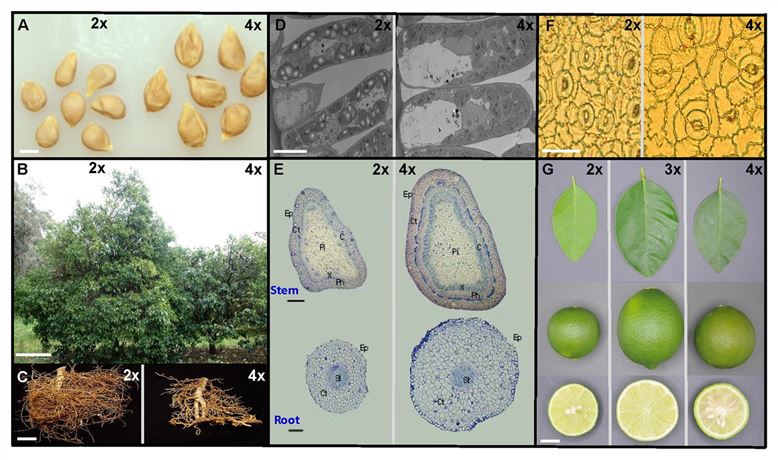Lifeasible provides diverse polyploidization services to support the breeding of polyploid plants, and we also provide validation services and marker-assisted breeding services to support research on polyploid plants. Our experts have the ability to design personalized breeding programs based on different project situations and can optimize breeding conditions.
Polyploids refer to organisms with more than two complete sets of chromosomes. Polyploidy plants may occur due to abnormal cell division spontaneously in nature, either during mitosis or during metaphase I of meiosis. Polyploid plants often exhibit increased vigor than their diploid parents in several aspects. Although polyploidy often results in seedless offspring due to meiotic errors, the fertility can be restored by doubling genome to create allopolyploidy. Polyploids are also important as bridges for genetic transfer between species of hybrid incompatibility, allowing the creation of plant varieties with enhanced pest resistance and stress tolerance. Thus, polyploidy gives plant breeders more options for developing plant variants with desired traits.
 Figure 1. Illustration of the phenotypic differentiation between diploid (2x) and polyploid (triploid, 3x and tetraploid, 4x) citrus at the plant, organ and cellular level. (Ruiz, M., et al. 2020)
Figure 1. Illustration of the phenotypic differentiation between diploid (2x) and polyploid (triploid, 3x and tetraploid, 4x) citrus at the plant, organ and cellular level. (Ruiz, M., et al. 2020)
Lifeasible's polyploidization services are applicable to many species to help customers achieve breeding purposes such as increasing crop yields, improving crop quality, and enhancing tolerance to various abiotic and biotic stresses. We offer different polyploidization technologies for customers to choose from to meet different research needs. We also provide marker-assisted breeding services such as marker-assisted selection (MAS) and genomic selection (GS) to help customers screen polyploids generated by polyploidization.
A commonly used agent for chemical induction is colchicine, which can result in chromosome doubling by inhibiting microtubule polymerization, preventing chromosome/chromatid migration during anaphase. Other antimitotic chemical agents, such as trifluralin, oryzalin, amiprophos-methyl, butamiphos, and N2O gas can also be used. Our experts will help you optimize the polyploidization plan based on your specific project, including optimization of parameters such as explant type, chemical reagent type and dosage, exposure time, and in vitro regeneration conditions to achieve a better induction rate.
Protoplast fusion is a biological culturing technology that allows adhering and fusion of two or more protoplasts, under the induction of polyethylene glycol (PEG), or electronic shock. Somatic hybridization by protoplast fusion can produce polyploid plants that do not undergo meiotic recombination events.
We also provide physical induction services to our customers and help them develop effective and appropriate polyploidy induction plans. A variety of physical methods can be used to induce polyploid formation, including temperature shock, ionizing radiation, grafting, etc.
We provide service for chromosome number validation via both indirect (e.g., examination of physiological and/or morphological traits) and direct (e.g., flow cytometry or fluorescent in situ hybridization (FISH)) approaches.
01
Diverse breeding techniques to choose from
02
Personalized solutions to meet different requirements
03
Experienced team of scientists and technicians
04
Shorten the breeding process for our customers
In addition to polyploidization services, Lifeasible offers a variety of other solutions for plant breeding. The plant genetic engineering, tissue culture and analysis platforms we have established enable customers to obtain a full range of botanical services.
Reference